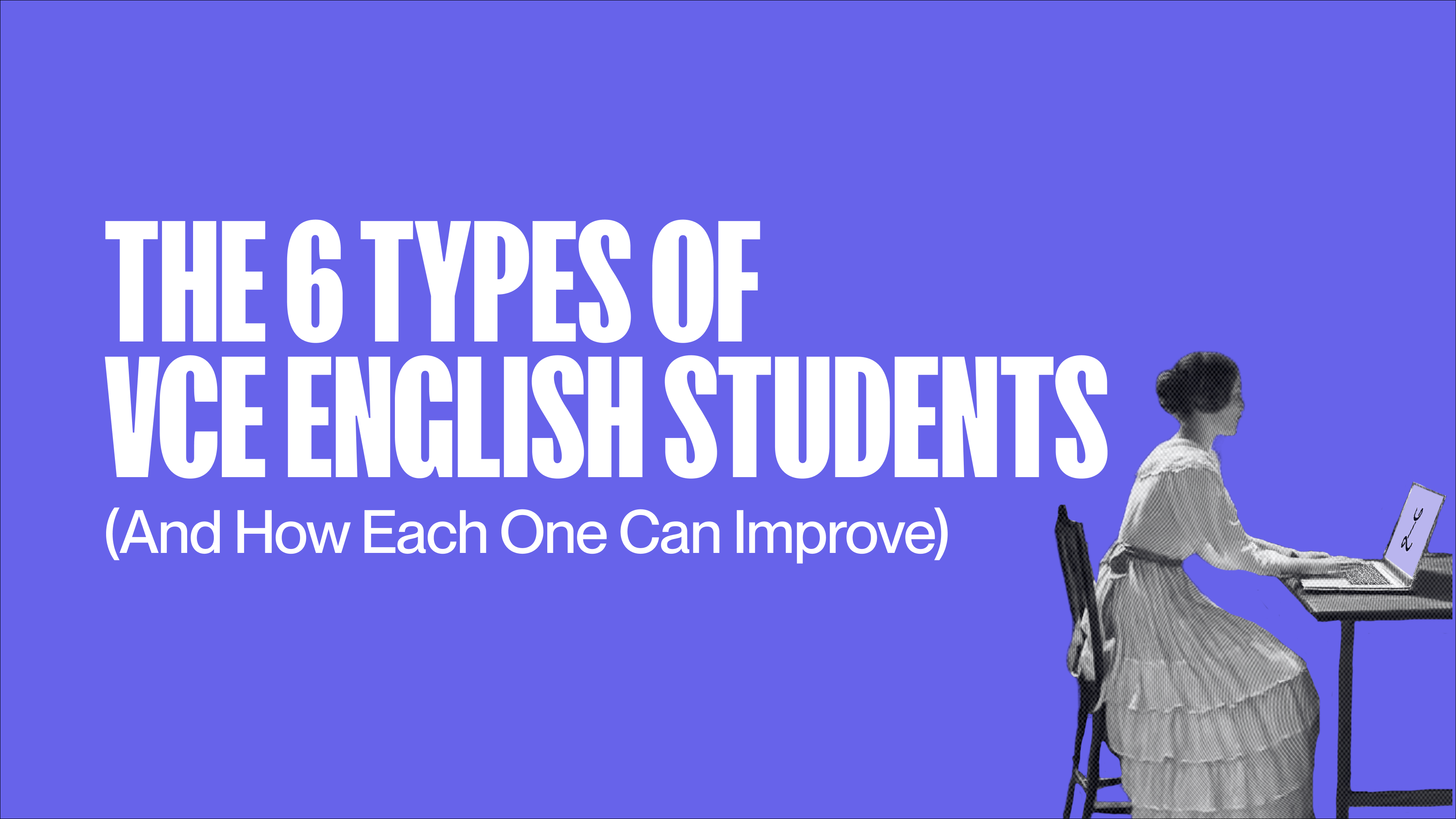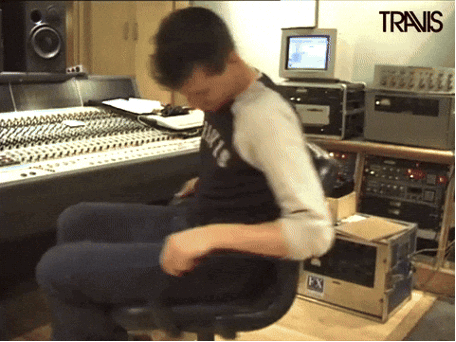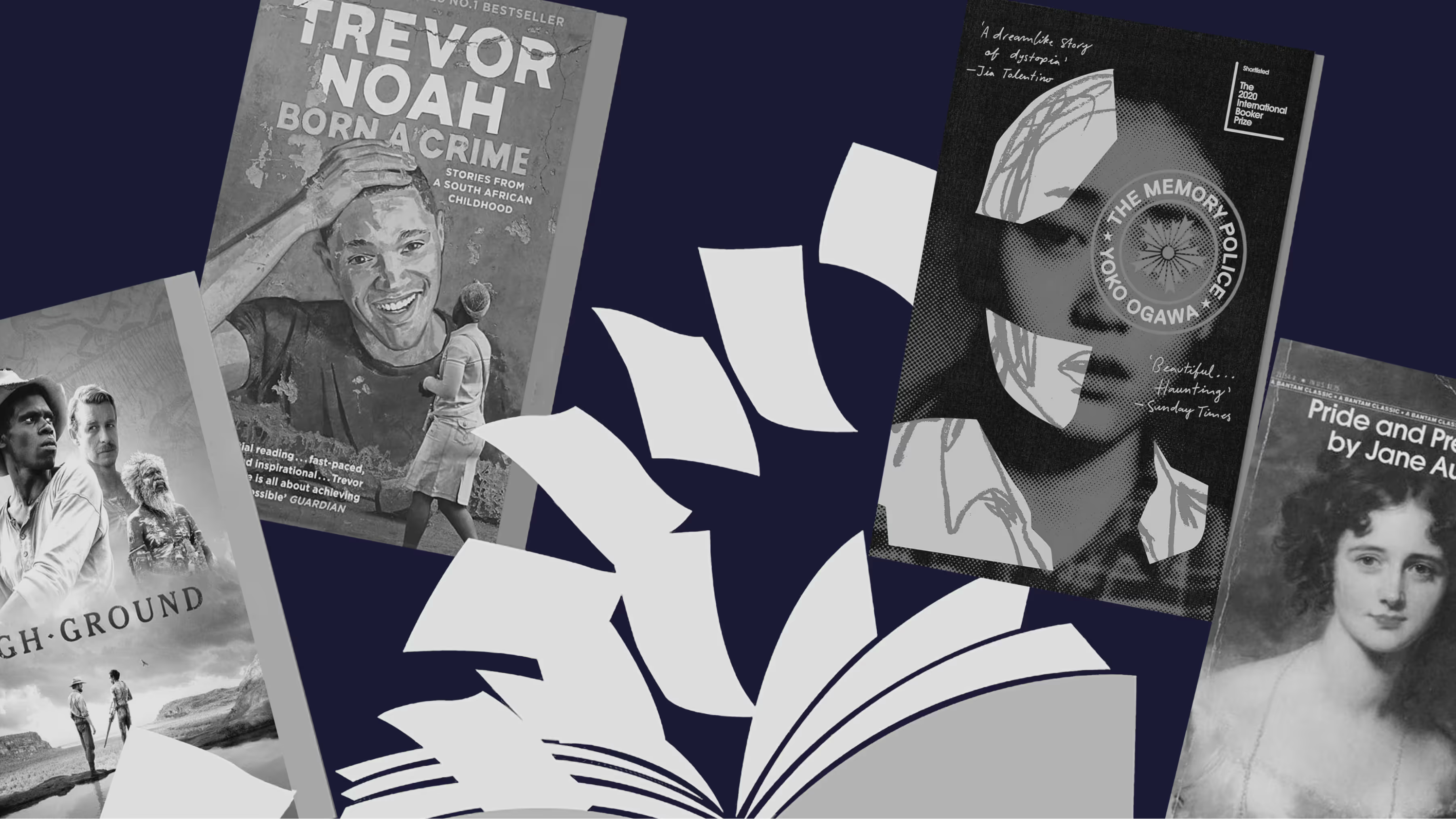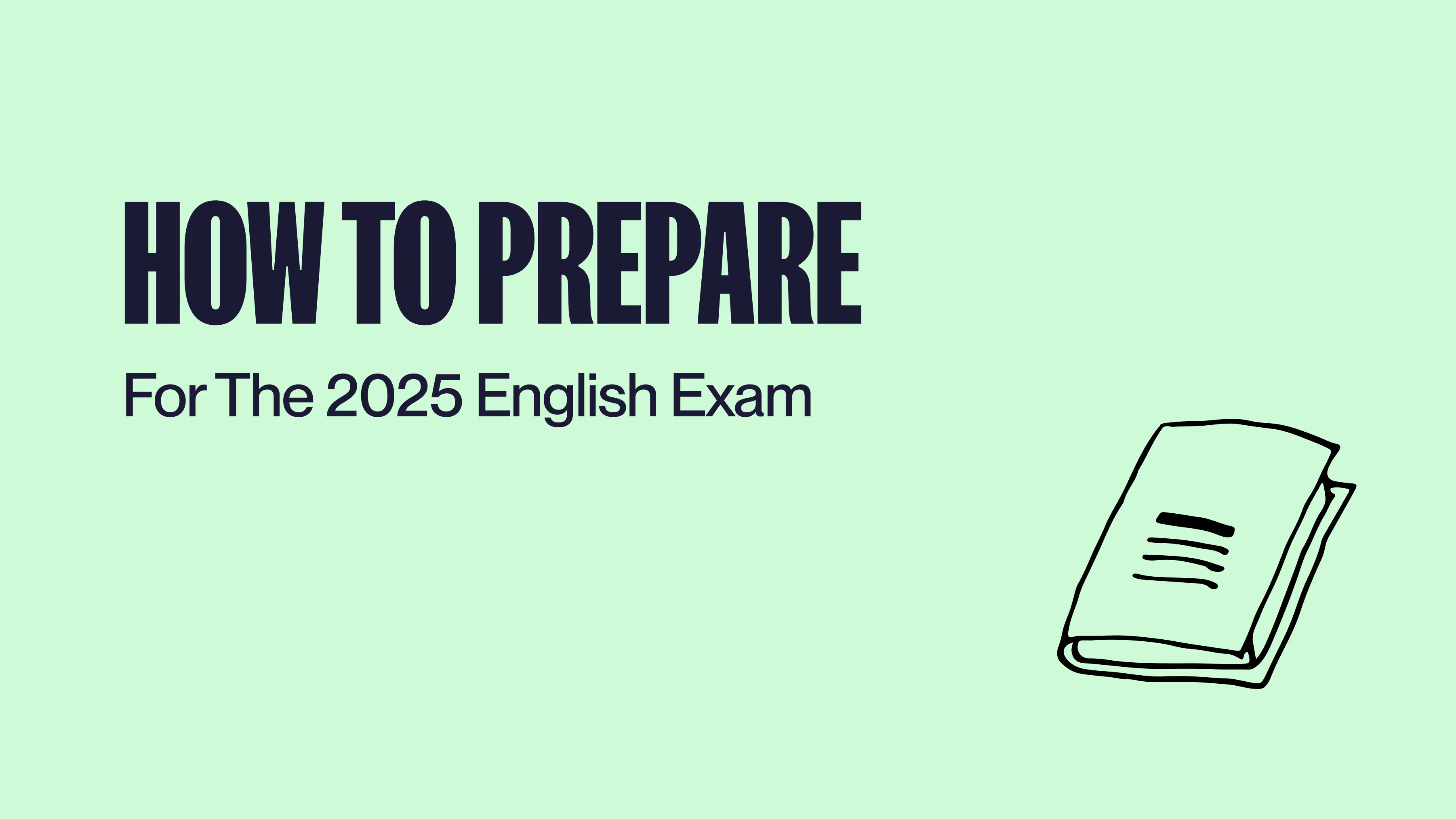
The 6 Types of VCE English Students (and How Each One Can Improve)
Everyone studies differently. Some people do a lot of it – others, less so. In our time as tutors of hundreds of VCE English, Literature and EAL students, we’ve identified a couple of student archetypes. Which one are you? And how do you combat your own personal weaknesses and work to your own personal strengths? Let’s find out.
1. The “I write five essays a week” student
Are you pumping out essays like it’s the industrial revolution and we’ve just invented an essay-making factory? Are your teachers and tutors downing shots of espresso to try and keep up with the essays that you’re sending to them for marking? If that’s the case, you’re the “I write five essays a week” student. A blessing… but also possibly a curse.

The good: Writing tonnes of essays is great! You’ll become more comfortable with your texts and their themes, while improving your ability to perform under pressure. Plus, practice makes perfect.
The bad: Writing a lot of essays really only works if they’re good essays… like my piano teacher told me when I was 12 – it’s not practice that makes perfect, it’s perfect practice that makes perfect. If you’re practising essays over and over again with the same bad habits, you’re just drilling those habits into your essay-writing techniques. Plus – writing too many essays can lead to burnout.
If this is you: Try writing shorter form pieces of writing, too. This includes things like single body paragraphs or single introductions. Try different exercises like a close analysis on a single random passage from your text. Or put yourself in the assessor’s shoes and try to come up with 5 essay topics.
Plus, write at a pace that allows you to get feedback from your teachers and tutors so that you can improve after each one – make sure that every essay you write yields a specific actionable goal or improvement for next time. And don’t forget to take breaks and go out into the sun every now and then – life’s too short to spend cooped up writing VCE English essays!
2. The ponderer
Are you thinking about the text a lot? Are you constantly asking yourself “but why”? Do you stump your teachers or tutors with tricky questions about the tiniest details in the book? Congrats! You’re a ponderer.

The good: Truly no detail is too small for the ponderer. The ponderer has thought a lot about the text – maybe too much.
The bad: If you were writing a PhD thesis on your text, this might be the way to go, but the fact is that you have less than 60 minutes to write an essay by hand responding to a specific question. Overthinking the tiny details of your text might end up being a waste of your time if you could be spending that time practising instead. Plus, it doesn’t matter how insightful your thoughts are if you can’t smoothly put them down on the page…
If this is you: Take a page out of the “I write five essays a week” student’s page and write more! Try not to get bogged down in the details of the text, and make sure that you have the major themes and pieces of evidence down pat. Then, focus on adding more specific or niche details as little pieces of garnish to your essay – a little treat for the assessor to chew on, not the meat of the writing.
3. The panicker/ATAR calculator doom-scroller
This student has ATAR calculator pinned, bookmarked, and open in their tabs. In fact, they might have it open in three different tabs, all at once. They know exactly what score they need to get in every subject to get the results they want. Why doom scroll on TikTok or Instagram Reels when ATAR calculator is right there? This student miiiiight have a little anxiety about their exams… just a little.

The good: You know your goals and you’re confident about them! You’re thinking proactively about what you need to do this year for your Year 12 studies, and nothing’s going to stop you.
The bad: Over-stressing about your scores can get a stressful at times…
If this is you: Try to focus on just doing your best. While it’s good to have goals, it’s not the end of the world if you score lower on a certain assessment than you expected. Your results on the end of year exam will moderate your SAC scores – and remember, ATAR isn’t the be-all and end-all. Even if you don’t get into the course that you’re wanting, there are always ways to follow your dreams. Who cares if you get a 70 ATAR and you want to be a doctor? You can still be a doctor! It might take you more time, and you might have to do a couple other degrees at uni to get there, but you’ll get there in the end. We have faith in you, so you have to have faith in you too.
4. The “I’ll do it tomorrow” student
It’s 11.59pm and the teacher has assigned an essay due for tomorrow… you’re got TikTok on your phone, Instagram’s open on your computer, and you’re doing a spot of online shopping on your iPad. Yesterday you went to Jack’s 18th birthday party at his house in Box Hill instead of doing your quote bank… things are looking grim!

The good: Well… at least you’ve got good work-life balance! (Maybe a bit too much life.)
The bad: The novel isn’t gonna read itself!
If this is you: Try to find what works for you when it comes to locking in. Maybe you need to leave your phone outside your room when you study. Or maybe you need to block a couple of apps or websites using a parental lock, and give your best friend the code. Or think about the reasons why you find it so hard to start. Is it because you find a whole essay too daunting? Then set yourself the task of a paragraph instead. Or is it because you hate reading? Try finding podcasts or YouTube videos on your text instead. Think creatively!
5. The student that’s married to their ChatGPT
“Hey ChatGPT, what’s Sunset Boulevard about?”

The good: ChatGPT can genuinely be a fantastic tool for learning – if used correctly.
The bad: If used incorrectly, however, ChatGPT can lead you down a path where you submit all the work without learning any of the skills necessary to then actually recreate that work under exam conditions. It’s also not great at analysing texts that aren’t very well-known (like local Australian texts, or ones that came out recently), and I’ve had students who used it, only to be fed false quotes which it argued definitely came from the book. It also usually has the same list of themes and ideas, so like every other resource, it’s limited in its output. It’s a double-edged sword!
If this is you: Learn to use your ChatGPT properly – don’t let your ChatGPT use you! Approach AI with the mindset of learning, and rather than generating things from scratch; see if it can help you in the brainstorming process, or in the feedback process. It’s great for rules-based things like correcting your grammar in your essays. Try something like “Hey Chat, correct all my grammar in this essay and explain to me what I’ve done wrong and why.” Avoid something like “Hey Chat, write me a text response on The Memory Police.”
We’re coming out with a blog article soon on how to use AI properly to study in Year 12 VCE English. Keep your eyes peeled for that soon!
6. The student that lives in the library
You know that one friend who’s constantly referencing something they watched or read on the text? They’ve watched every YouTube video on the book, and listened to every podcast, and borrowed every single text guide on it from your school. Or maybe they’re constantly at the library, looking up resources and academic papers on the Shakespeare play you’re studying. Aah, the Hermoine Granger – research is always the answer!

The good: No one can beat this friend at context. They know every tiny little fun fact about the play – did you know that Yoko Ogawa’s “The Memory Police” was inspired by “The Diary of Anne Frank”? Did you know that Billy Wilder, director of “Sunset Boulevard”, was born in Austria and inspired by German Expressionism, which was a movement that utilised dark, ominous and atmospheric elements to capture the collective dreams and values of a society?
The bad: While researching a text can be a great way to deepen your knowledge of the text, learning every tiny detail of the text, or getting your interpretation from Shakespearean academics who have explored a single idea over 40 pages, is not necessarily going to be helpful in a VCE English or VCE Literature exam setting.
If this is you: Try not to go overboard. Investing lots of time in researching new and niche ideas about the text from every possible resource online and offline is not always the best way to spend your time. Plus, reading all these ideas without ever writing them down in response to a specific essay prompt is a recipe for disaster. Make sure that you’re spending an equal amount of time writing these ideas out, or thinking about how they’ll be used in an essay-writing setting, too.
That’s all from us today! Did you find yourself in the six students above? Or maybe at least elements of your own study habits? We hope that these tailored study tips have been helpful, and good luck with the rest of your SACs throughout the year. And remember, don’t forget to go out and touch some grass every now and then – it’s just VCE English after all!
Need help mastering VCE English? Our experienced tutors provide personalised guidance for VCE English, Literature and EAL students across Melbourne.



